Los Angeles: $100m plan to tackle homeless 'emergency'
- Published
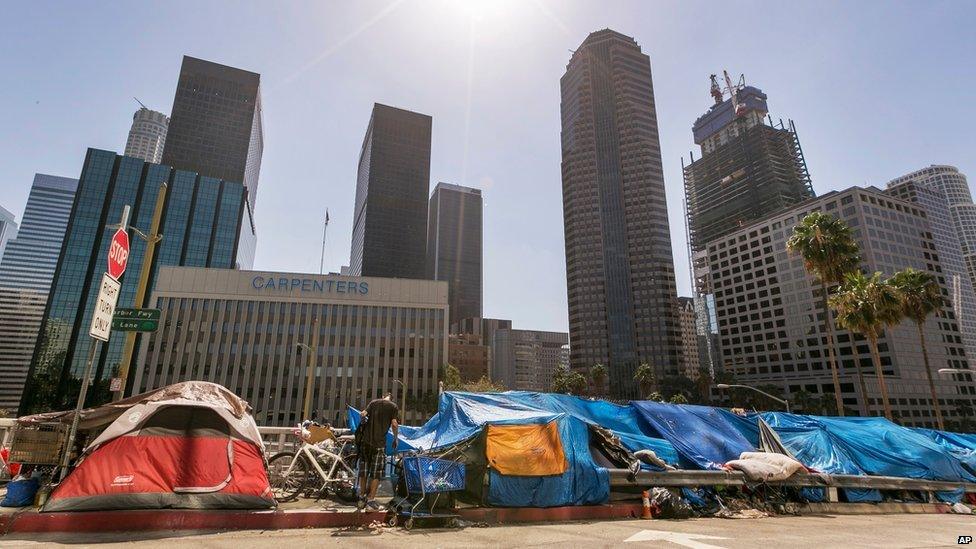
Growing numbers of wealthy inhabitants have put previously affordable districts out of the reach of many
The city of Los Angeles in the United States has declared its growing problem of homelessness a public emergency.
City officials say they will commit $100m (£65m) to tackle the problem.
An estimated 26,000 people live on the city's streets, 12% more than two years ago.
Experts say high rents, low wages and unemployment are to blame for the rise. Officials admit that the present policy amounts to little more than moving the problem around the city.
The plan was announced by Mayor Eric Garcetti, who is heading the city's bid to host the 2024 Olympics.
Tents and tarpaulins can now be seen clustered on pavements across the city - and far beyond the central Skid Row district, historically a magnet for the city's homeless.
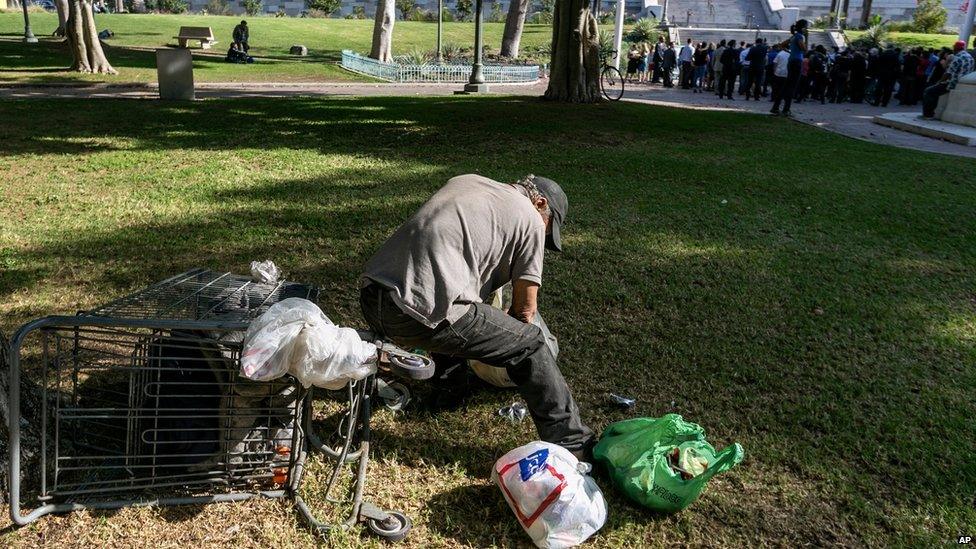
The homeless problem has spread far beyond Skid Row and is now encroaching the lawns of City Hall
"Every single day we come to work, we see folks lying on this grass, a symbol of our city's intense crisis," Mayor Garcetti, a Democrat, said at a news conference.
"The city has pushed this problem from neighbourhood to neighbourhood for too long."
According to one recent report, external, 13,000 people in Los Angeles County become homeless each month.

Homelessness in the US
Homelessness means sleeping outside or in an emergency shelter or transitional housing program.
A lack of affordable housing, poverty (due to lack of jobs and declining public assistance), a lack of affordable health care, domestic violence, mental illness and addiction are all factors in homelessness, external.
Homelessness is declining nationwide, but the picture remains mixed, with some states and cities dramatically bucking that trend.
The decline is attributed to the economic recovery in the US - most notably the fall in unemployment figures.
From 2013 to 2014, the national rate of homelessness fell to 18.3 homeless people per 10,000 people, external in the general population (0.18%), but the rate in individual states ranged from 120 in Washington DC to seven in Mississippi.
Sources: National Alliance to End Homelessness, National Coalition for the Homeless, US Census

The mayor and seven other elected officials declared the situation an emergency on Tuesday, saying they would find $100m in the 2016 budget to devote to addressing the problem.
The money still has to be approved by the city council.
It might be used to increase the provision of homeless shelters, use public facilities such as schools and parks as emergency housing and facilitate the construction of affordable housing, officials suggested.
When Maxwell Moore, a combat medic with the US military, returned home to California he was shocked by the poverty on the streets. He started a soap company and donates bars to the homeless.
A further $13m of unexpected income in this year's budget will also be earmarked to alleviate homelessness.
But critics point out that it is unclear where the $100m would come from and say a plan previously announced by the mayor on homelessness has yet to be enacted.
Gary Blasi, a UCLA professor and homelessness expert, told media outlets the plan was a positive step for a government which has focussed until now on trying to clamp down on homeless encampments.
But he said previous grand schemes had "never made it off paper" and pointed out that given the scale of the problem, $100m did not amount to much.
The problem, experts say, stems from rising housing costs and an unequal economic recovery - a problem mirrored in other cities such as San Francisco and New York.
- Published2 March 2015
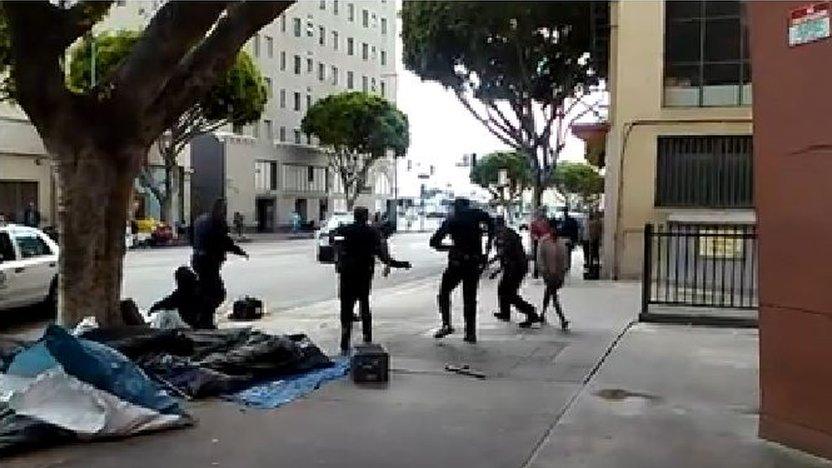
- Published9 March 2015
- Published19 March 2015
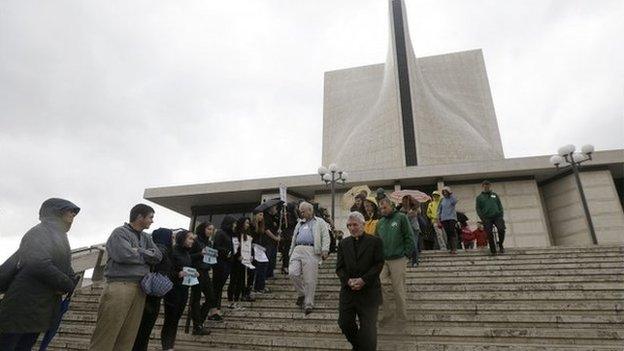
- Published4 December 2014
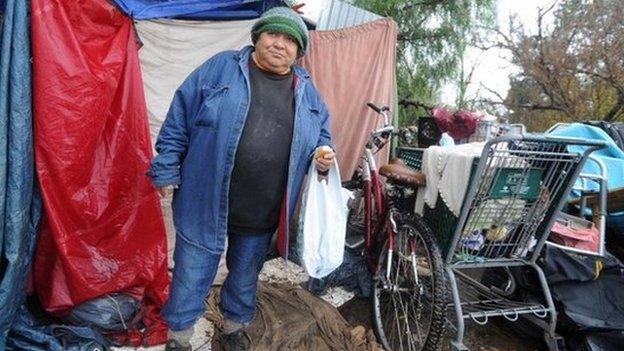
- Published20 September 2013
